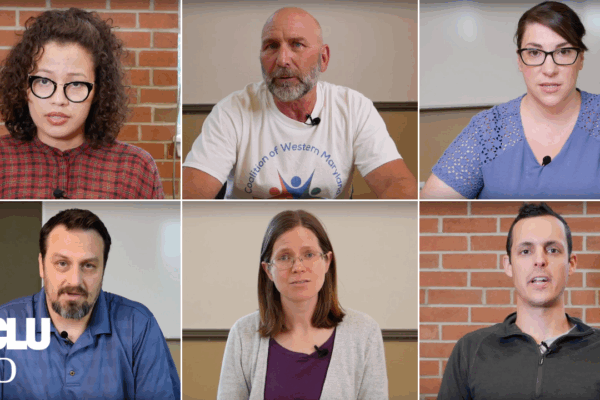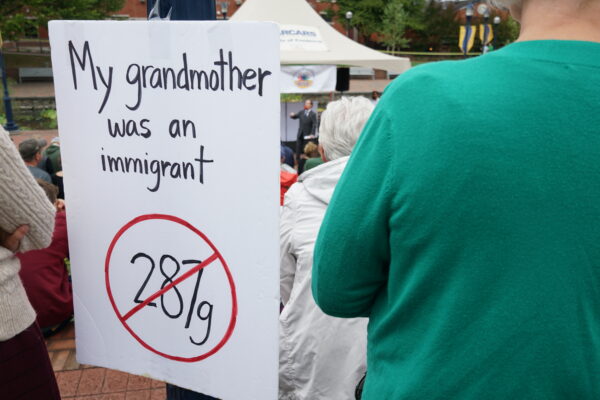By Dana Vickers Shelley, Executive Director, ACLU of Maryland; and Gustavo Torres, Executive Director, CASA
For nearly a decade, CASA, ACLU of Maryland, advocates and hundreds of immigrant families across the state have fought to end Maryland’s partnership with U.S. Immigration and Customs Enforcement. After years of little movement in the General Assembly, Maryland lawmakers are in a greater position than ever to pass the Trust Act this session.
Black and Latinx immigrants across Maryland live in fear of being unlawfully arrested, detained, separated from their families, and deported because of the cruel policies of state and local law enforcement.
Roxana Santos was racially profiled by police in Frederick and turned over to ICE because they claimed she was eating her sandwich “suspiciously” during her work break. Sara Medrano was stopped by Frederick deputies because of a “broken” taillight that turned out to be working fine. They questioned her immigration status then tried to detain her for ICE. Eddy, who is from Guatemala and for safety concerns chooses not to use his last name, was detained by local police after he was stranded on the side of the road with a blown-out tire. “I believed the police officer was going to help me, but it wasn’t like that,” Eddy said. “He asked for my identification and soon he called ICE.”
This OpEd was originally published in Maryland Matters on March 29, 2021.





